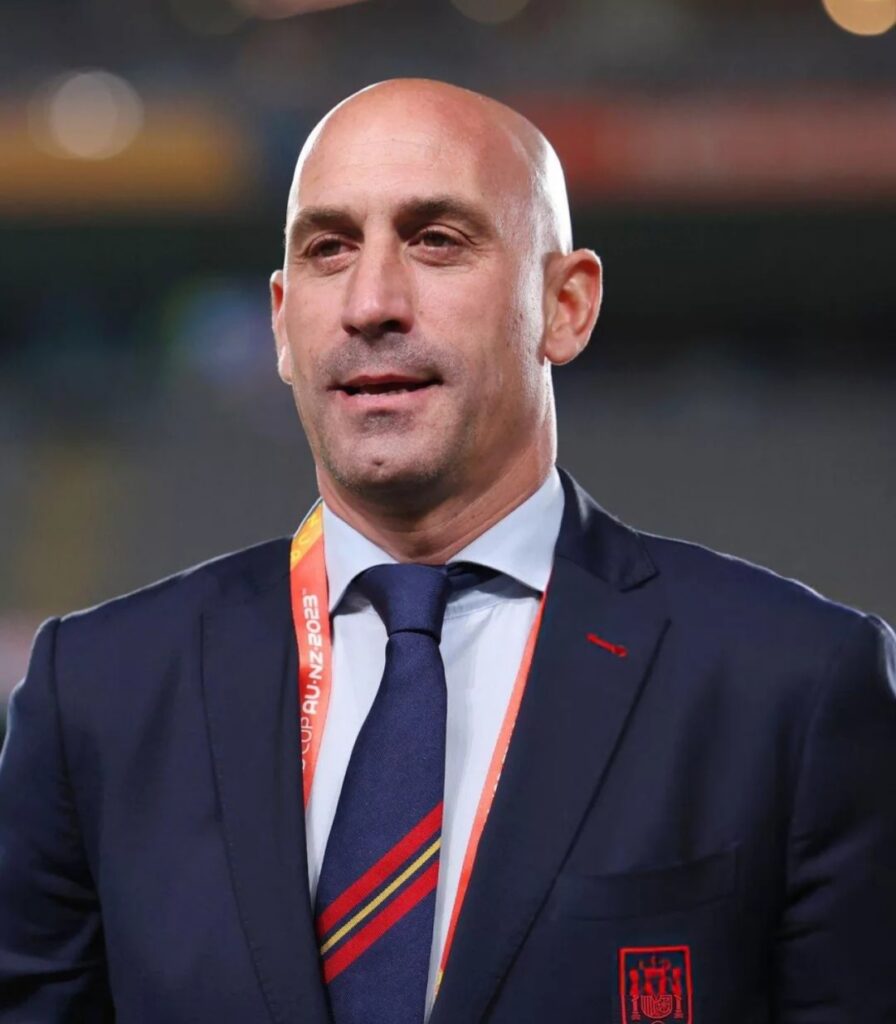Former Spanish Football Federation (RFEF) president Luis Rubiales has been convicted of non-consensually kissing Spain’s star player, Jenni Hermoso, after the 2023 Women’s World Cup final. The verdict has reignited conversations about sexism in sports and power dynamics in football governance.

The Infamous Kiss That Shook Spanish Football
During the medal ceremony following Spain’s historic victory over England, Rubiales grabbed Hermoso and kissed her on the lips in an incident witnessed by millions worldwide. What should have been a moment of triumph for Spanish women’s football turned into an international scandal, with widespread condemnation of Rubiales’ actions.
Rubiales repeatedly claimed that the kiss was consensual, telling the court, “I asked her if I could give her a little kiss, and she said OK. I’m totally sure she gave consent.” However, Hermoso firmly denied this, stating in her testimony, “My boss was kissing me, and this shouldn’t happen in any social or work setting.”
Legal Fallout and Courtroom Drama
Rubiales’ trial has been a high-profile event, with testimony from multiple figures, including former Spain women’s coach Jorge Vilda, ex-RFEF officials Albert Luque and Rubén Rivera, and a lip-reading expert.
The prosecution accused Rubiales and his associates of coercion, claiming they pressured Hermoso into publicly downplaying the incident. The court also reviewed videos where Hermoso initially brushed off the kiss as an “anecdote,” but she later clarified that she had felt forced to do so under immense pressure.
A lip-reading expert testified that Rubiales had asked Hermoso, “Can I give you a little kiss?” but Hermoso’s response was not visible in the footage. Despite this, Hermoso maintained that she never gave consent.
FIFA Ban and Spain’s #MeToo Movement
The backlash against Rubiales was swift. FIFA suspended him for three years, and amid mounting public outrage, he was forced to resign as RFEF president. His insistence that he was a victim of a “witch hunt by false feminists” only fueled further criticism.
Hermoso’s defiance became a rallying cry for gender equality in football, with the incident sparking a broader #MeToo movement in Spain’s sporting community. Her courage in standing up against a powerful figure has empowered other female athletes to speak out against sexism and harassment in the industry.
What’s Next for Rubiales and Spanish Football?
Rubiales has now been banned from contacting or approaching Hermoso for a year. Prosecutors are pushing for a harsher penalty, seeking a two-and-a-half-year prison sentence and a €50,000 fine.
Meanwhile, Spanish football continues to reckon with its deep-seated issues of gender inequality and power abuse. The incident has led to increased scrutiny of the RFEF’s leadership and a renewed push for reforms to protect female athletes from similar misconduct.
As the trial continues, one thing is clear: this case has forever changed the landscape of women’s football in Spain, proving that no one is above accountability.




























